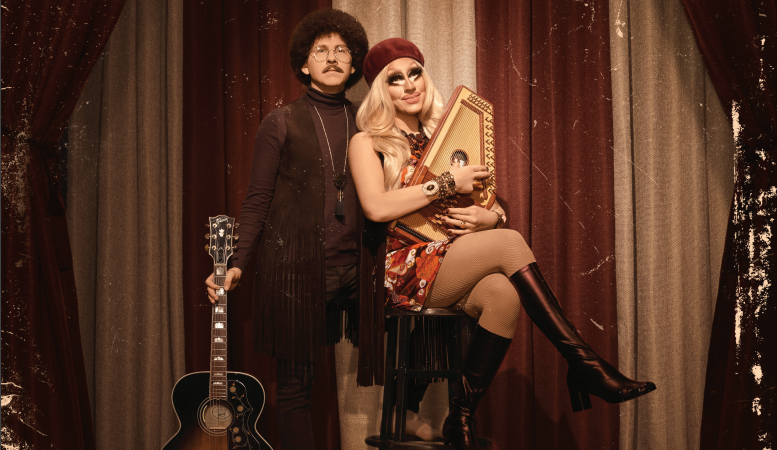DVD review – The Sex of Angels
3 min read
Spanish Director Xavier Villaverde has been steadily building a name for himself since making his first film, A Semente, in 1974 at the age of sixteen, and has been directing intermittently ever since. Making only a handful of feature length films, he has gained notoriety for titles such as Finisterre, donde termina el mundo (1998) which won various awards throughout Europe, including the Cinematography Prize at the Avanca Film Festival in 1999. In 2012 Villaverde returned with The Sex of Angels, soon to get a UK DVD release from TLA Releasing.
 The Sex of Angels is essentially the tale of a love triangle imbued with distinctly modern sensibilities. Who’s to say love triangles can’t have happy endings? Certainly not Villaverde, who brings us into the lives of young lovers Carla (Astrid Bergès-Frisbey) and Bruno (Llorenç González) who are planning on spending the rest of their lives together; that is until Bruno meets Rai (Álvaro Cervantes), a martial artist cum break dancer, who gallantly rescues Bruno from a street mugging. Bruno returns the favour by finding accommodation for the impoverished athlete and soon begins to realise that his feelings for Rai are going beyond the mere platonic. The two men embark on a sexual affair, which Carla soon discovers. Convinced that he is no less in love with Carla than he is with Rai, Bruno proposes that he and Carla explore an ‘open relationship’ so that he can fully explore his bisexual nature, leading Carla to redefine what she once considered to be the perfect relationship. So far so complicated, only made more so when Rai’s attempts to befriend Carla and make amends for the heartache he’s caused her also develop into something far more passionate, forcing the trio to ultimately confront societal mores, their notion of relationships and their own sexual boundaries.
The Sex of Angels is essentially the tale of a love triangle imbued with distinctly modern sensibilities. Who’s to say love triangles can’t have happy endings? Certainly not Villaverde, who brings us into the lives of young lovers Carla (Astrid Bergès-Frisbey) and Bruno (Llorenç González) who are planning on spending the rest of their lives together; that is until Bruno meets Rai (Álvaro Cervantes), a martial artist cum break dancer, who gallantly rescues Bruno from a street mugging. Bruno returns the favour by finding accommodation for the impoverished athlete and soon begins to realise that his feelings for Rai are going beyond the mere platonic. The two men embark on a sexual affair, which Carla soon discovers. Convinced that he is no less in love with Carla than he is with Rai, Bruno proposes that he and Carla explore an ‘open relationship’ so that he can fully explore his bisexual nature, leading Carla to redefine what she once considered to be the perfect relationship. So far so complicated, only made more so when Rai’s attempts to befriend Carla and make amends for the heartache he’s caused her also develop into something far more passionate, forcing the trio to ultimately confront societal mores, their notion of relationships and their own sexual boundaries.
Screenwriter Ana Maroto, best known for TV credits such as Médico de familia, works hard to keep the story from becoming laughably convoluted and in this she is fundamentally successful, creating moments of real dramatic beauty. The great difficulty is that there are really two films vying for dominance within the hour and forty minutes run time. On one hand there is an intelligent and insightful meditation on what it is to be a young person discovering that sexuality is more divergent and multifaceted than they were brought up to believe; and on the other hand there is an insipid and vacuous teen drama, where no difficulty can’t be overcome by dancing. The problem is that neither approach wholly wins out. We are presented with many moments of real promise where the film finds its voice and threatens to become deftly perceptive and powerful. These moments are then seemingly discarded in favour of content far less challenging, designed for easy consumption. You begin to wonder if Villaverde really identifies with, or indeed trusts, his audience.
Despite the uneven and heavy-handed narrative, there is one fundamental strength throughout: Astrid Bergès-Frisbey, who crafts the most well realised character in the film. Her accomplished portrayal of Carla enables the film to traverse its weaker moments and re-establish itself on solid ground. The intelligence, strength, sweetness and indeed sexiness that she brings to the role allow the film to demonstrate elements of the human condition that feel real. We are left in no doubt that it’s her journey that we, the audience, are on; she is the most compelling aspect of the film. You get a true sense that she is trying to discover who she is, to grapple with emotions and situations that are far beyond her experience; you feel her wanting to embrace the complexity of adulthood yet simultaneously retreat to the inexperience of childhood. She speaks of a generation stifled by, yet dependent upon, the societal (and at times patriarchal) values of the past, as well as a generation longing to find normality and security in the distinctly unfamiliar.
Whilst The Sex of Angels may not break any boundaries, or offer any new perspectives on the concept of the ménage à trios, this film does have a certain tenderness and humanity to it and is a respectable and enjoyable offering in the canon of contemporary LGBT cinema.
[youtube id=”clVY2SgwSAs” width=”620″ height=”360″]



